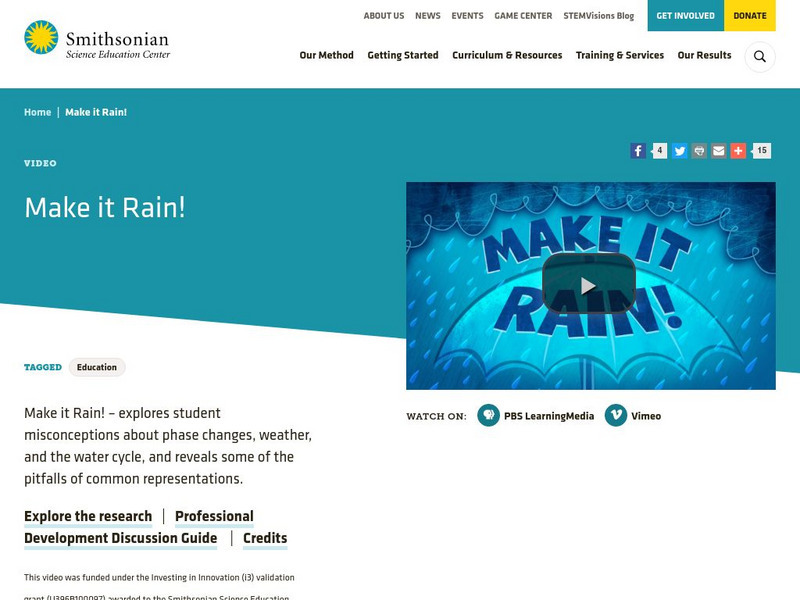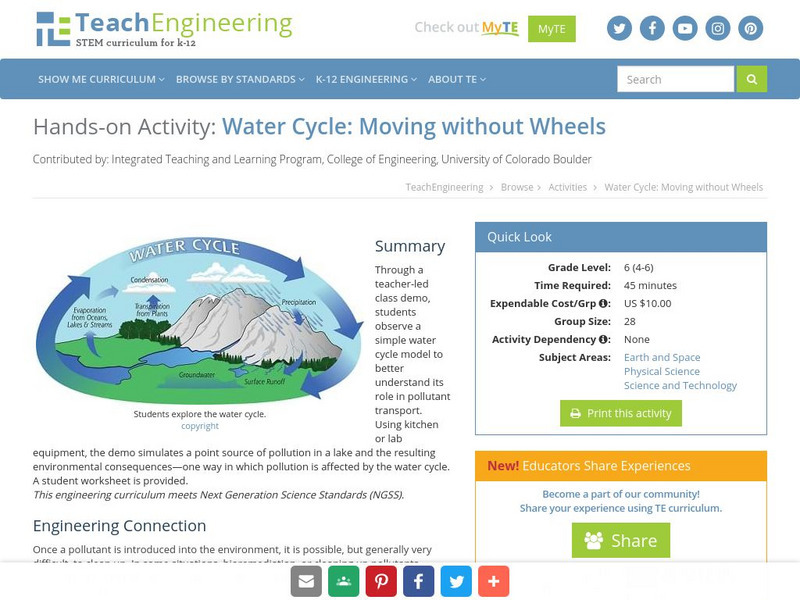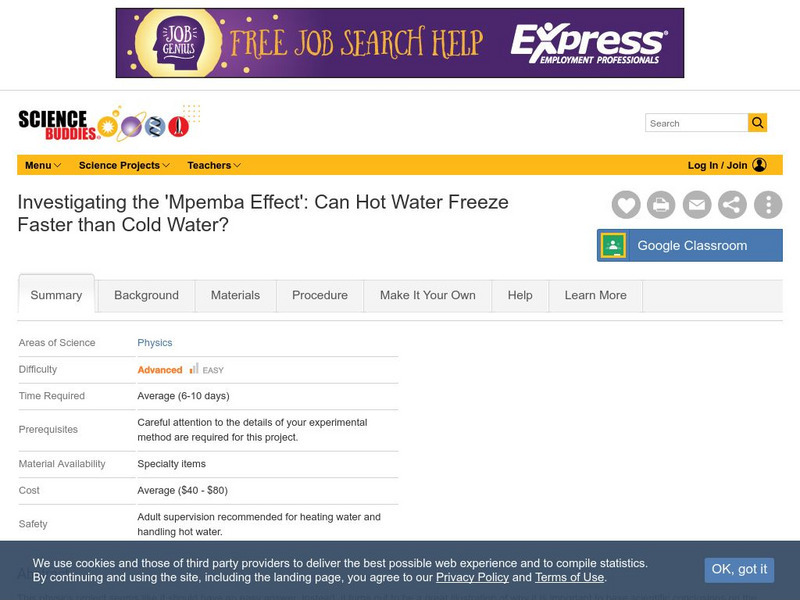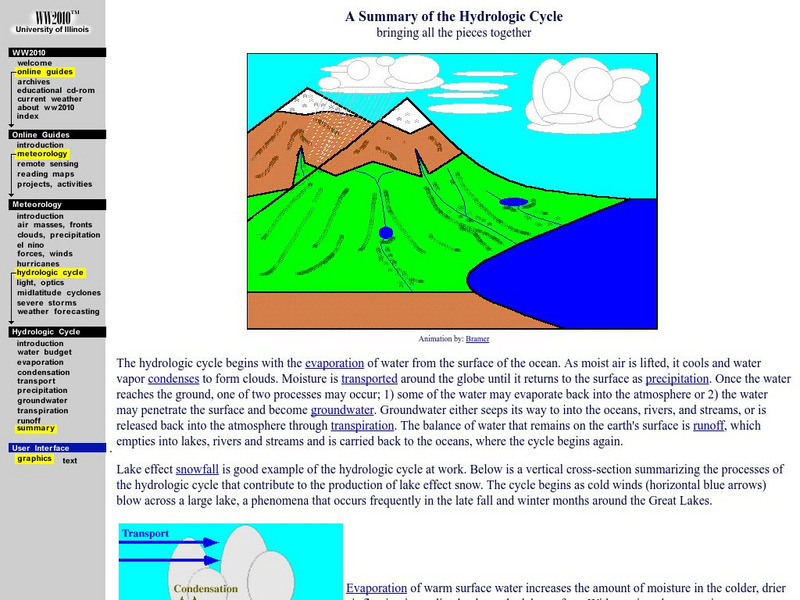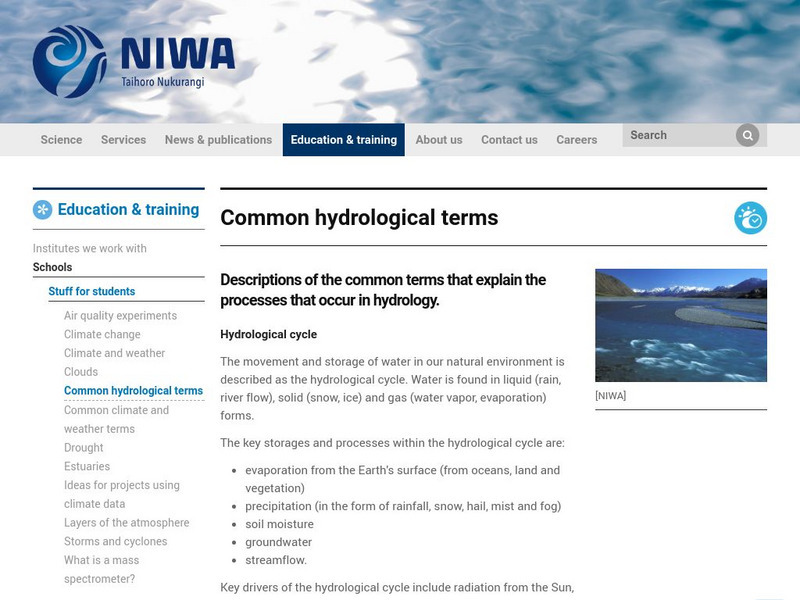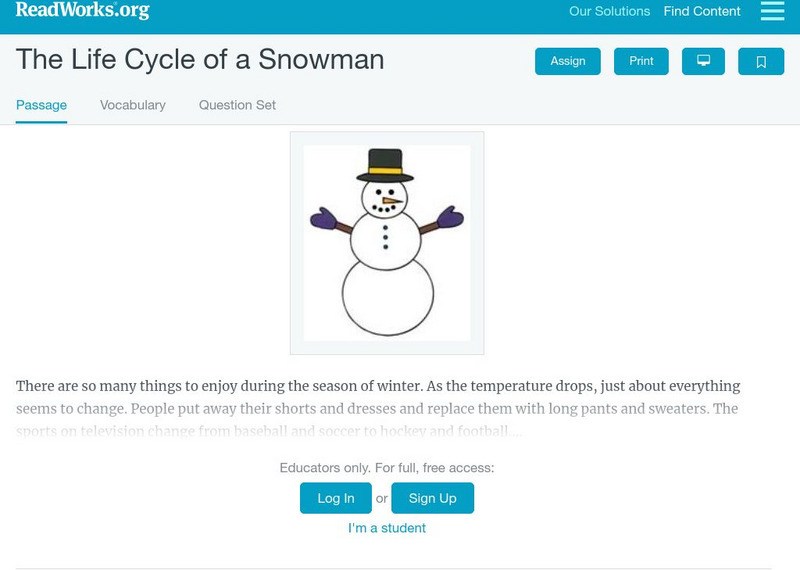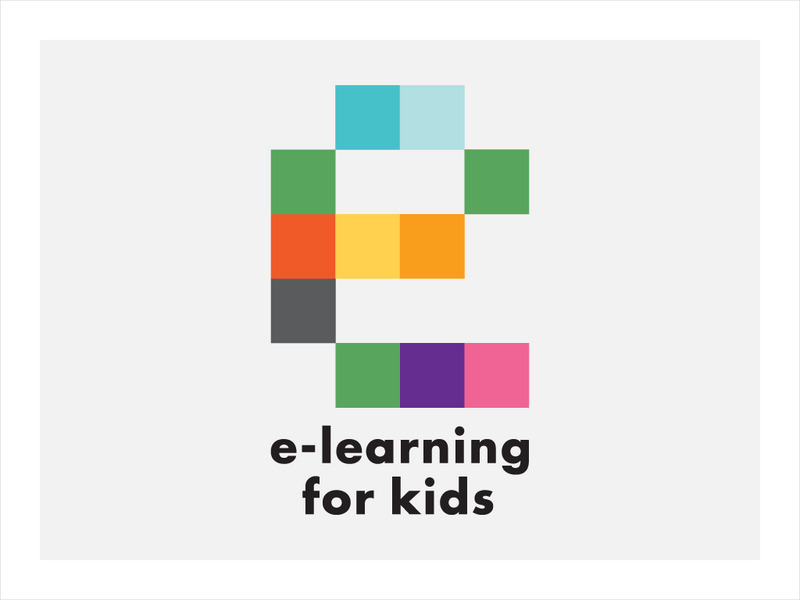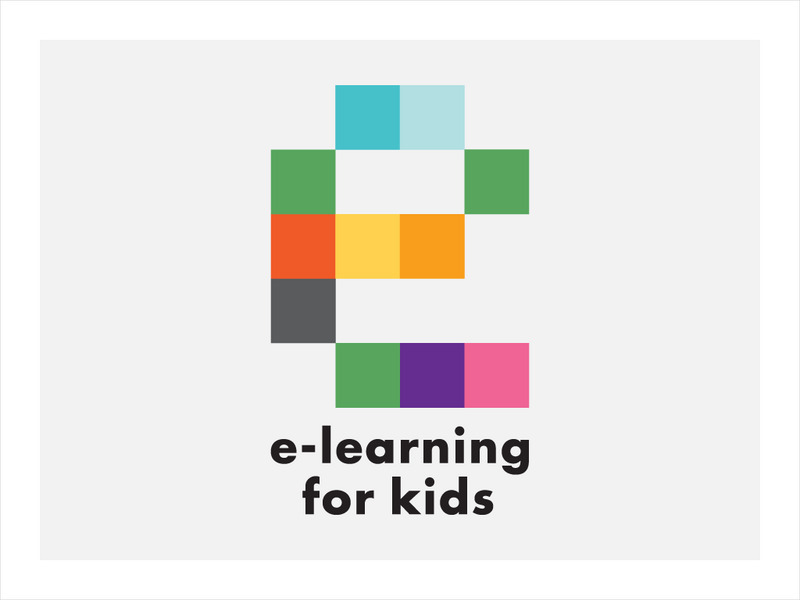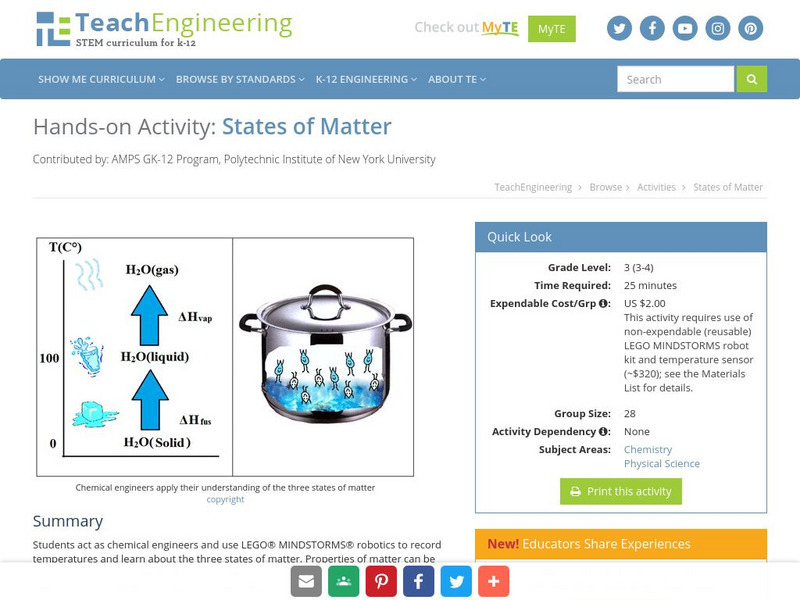American Chemical Society
Middle School Chemistry: Changing State: Condensation
Students investigate water cycle processes by testing how cooling affects the rate of condensation of water vapor.
Smithsonian Institution
Smithsonian Science Education Center: Make It Rain
How do you show students that the water cycle is more than just the traditional model of the ocean, clouds, and mountains and actually a part of their daily lives? This video will show multiple models of different part of the water cycle...
TeachEngineering
Teach Engineering: Moving Without Wheels
In a class demonstration, students observe a simple water cycle model to better understand its role in pollutant transport. This activity shows one way in which pollution is affected by the water cycle; it simulates a point source of...
PBS
Pbs Learning Media: Ways of Watersheds
Learn about the four phases of the water cycle, the ways in which watersheds are crucial to healthy water, and the best ways to manage local watersheds with this interactive lesson.
Science Buddies
Science Buddies: Investigate Mpemba Effect Can Hot Water Freeze Faster Than Cold
This physics project seems like it should have an easy answer. Instead, it turns out to be a great illustration of why it is important to base scientific conclusions on the outcome of controlled experiments. Things don't always turn out...
US Geological Survey
Usgs: "Thirsty? How 'Bout Seawater?"
This U.S. Geological Survey website explains the desalinization method used by some communities to change sea water into drinking water. Click Home to access the site in Spanish.
American Geosciences Institute
American Geosciences Institute: Evaporation and Condensation
A concise explanation of the difference between evaporation and condensation.
Science Struck
Science Struck: Water Cycle: An Easy Explanation for Kids
Provides a simple explanation of the water cycle by describing four main stages - evaporation, condensation, precipitation, and collection. Includes three project ideas and some interesting facts.
Science Struck
Science Struck: Water Cycle Diagram
Describes the four main stages of the water cycle - evaporation, condensation, precipitation, and collection.
Concord Consortium
Concord Consortium: Stem Resources: Relative Humidity Measurement
Using the wet bulb-dry bulb method, students will compare the temperature of a dry temperature sensor and a wet temperature sensor. By comparing the temperatures, students will be able to find the relative humidity. After completing the...
University of Illinois
University of Illinois Urbana Champaign: A Summary of the Hydrologic Cycle
Animation and text explain the water--or hydrologic--cycle, which is the process that water undergoes in nature.
Other
Niwa: Common Hydrological Terms
A glossary of terms that describe the processes that occur in hydrology. Glossary explains evaporation, precipitation, soil moisture, groundwater, and stream flow.
Read Works
Read Works: The Life Cycle of a Snowman
[Free Registration/Login Required] An informational text about water as a liquid, a solid, and a gas. A question sheet is available to help students build skills in reading comprehension.
E-learning for Kids
E Learning for Kids: Science: Bermuda Triangle: What Is Condensation?
Cindy is at the beach learning a lot about water. Join her to explore the water cycle.
E-learning for Kids
E Learning for Kids: Science: Rio De Janeiro Carnival: What Is Boiling?
Ready for the carnival? First, help Joao get ready for his test about the water cycle, and then explore other water cycle processes.
ClassFlow
Class Flow: Dissolving and Evaporation
[Free Registration/Login Required] Ever wondered what happens at the molecular/ionic level when salt is dissolved in water or salt-water is evaporated by heating/boiling? Peek into the molecular world with this flipchart to view these...
Concord Consortium
Concord Consortium: What Makes Water Special?
Activity 2 investigates Why is water different from other liquids? This activity will investigate properties of different liquids. Students will explore what makes honey gooey and thicker than water. And why some liquids evaporate faster...
Concord Consortium
What Happens to the Energy of Water Molecules During Hurricanes?
How does energy charge when evaporation is reversed? and What powers a hurricane? are explored in this module.
TeachEngineering
Teach Engineering: States of Matter
Students act as chemical engineers and use LEGO MINDSTORMS NXT robotics to record temperatures and learn about the three states of matter. Properties of matter can be measured in various ways, including volume, mass, density and...
Utah Education Network
Uen: How Do You Dew?
See how the processes of condensation and evaporation occur.
Other popular searches
- Wind Water Evaporation
- Water Evaporation Art
- Properties Water Evaporation
- Water Evaporation Rate
- Water Evaporation in Hands



